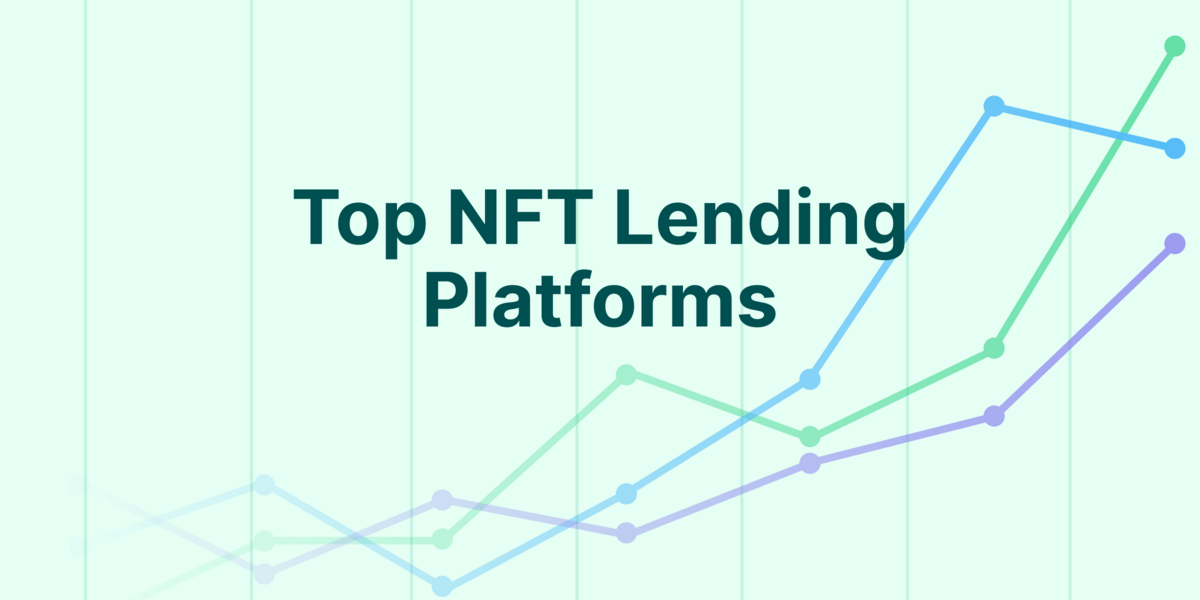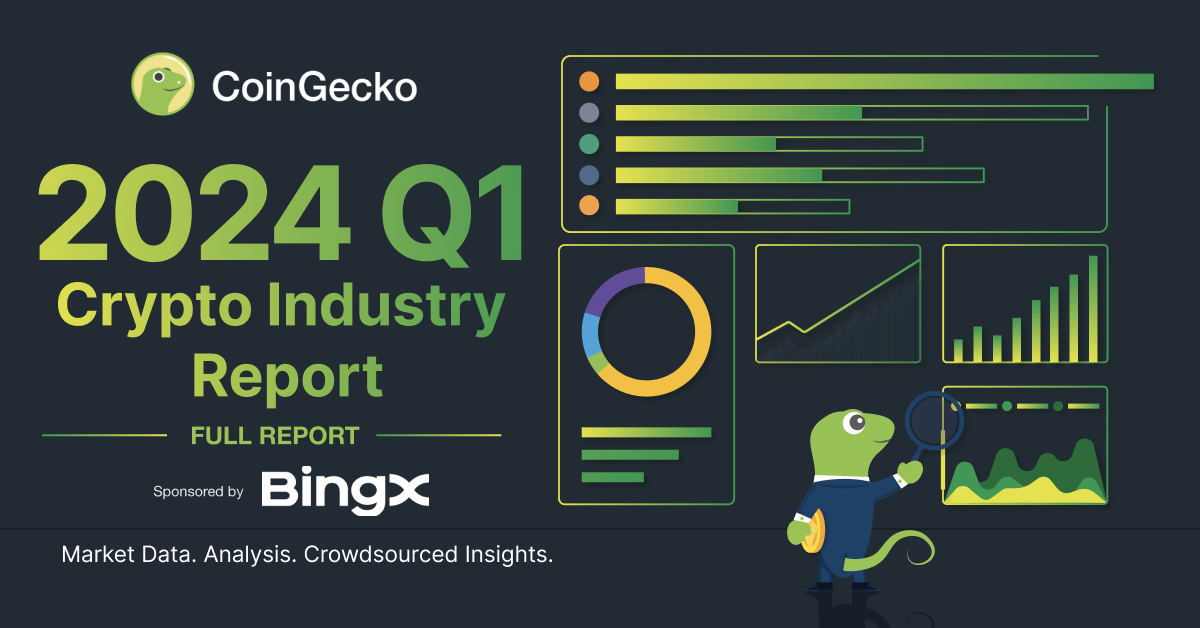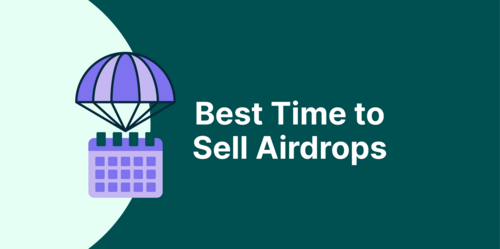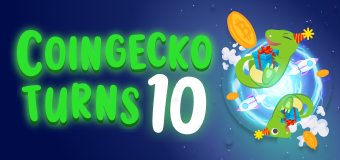Key Takeaways
-
OpenSea is one of the largest NFT marketplaces. Until recently, it accounted for a majority of the reported trading volume for non-fungible tokens.
-
Other NFT marketplaces like Blur, Rarible, and LooksRare also provide the same service to NFT holders.
-
These alternatives seek to command a share of the total NFT market by not only offering similar services but also luring NFT traders with optimized services and incentives, where each alternative looks to carve a reputation for itself.

NFT trading platforms are also known as NFT marketplaces, which are platforms where NFT owners can put up their assets for sale. They allow traders to set pricing parameters for their non-fungible tokens and automate the process of transferring ownership of the associated NFT when a buyer satisfies the asking price of the NFT.
Traders can also set up an auction event for their NFTs and sell them to the highest bidder. This process can also be automated on extant NFT marketplaces. Almost any type of NFT can be traded on NFT marketplaces, although art, gaming, and meme NFTs are the dominant types available.
However, NFT marketplaces are not limited to this. Most marketplaces are a one-stop destination for NFT enthusiasts. In addition to exchange facilities, most NFT marketplaces double as an asset custody platform and a minting platform, where users can mint new NFTs and manage their collections on NFT marketplaces.
A good number of NFT marketplaces also offer promotional services for NFT creators and incentives to traders. OpenSea’s NFT trading platform is one of the earliest prototypes of present-day NFT marketplaces. Other known players in this space include Rarible, Looksrare, SuperRare, and Magic Eden.
How to Choose an NFT Marketplace
Looking for a platform to mint or trade your NFTs? Here are a few things to consider:
Supported Chains
NFT marketplaces support selected blockchain networks, this is usually due to an ongoing attempt to develop technical support for the networks’ technology, along with a few other reasons. As a creator, the first thing is to ensure that the NFT marketplace supports the blockchain network you’re planning to launch your NFT on. As a trader, you will be unable to list your NFT on the marketplace if it doesn’t have support for the chain on which your NFT is minted. You might also want to consider this while purchasing NFTs from other marketplaces.
Audience
NFT marketplaces can cater to different types of audiences. This might be due to its history, geographical location, or its marketing approach. For instance, a marketplace might be art centered, where the majority of its community is only interested in collecting NFT art. Listing a meme NFT on such a platform might result in a delayed sale or selling for a low price if the auction option is used. Some marketplaces are specific to a type of NFT, like how sound.xyz is only meant for music NFTs.
Liquidity
If your chosen network is supported by the marketplace and the audience aligns with your goals, another factor to consider is the liquidity on the platform. Liquidity is the buy and sell density, which dictates the availability of buyers for your NFTs or purchase options for the NFT you wish to buy. Just like trading with the wrong audience, poor liquidity might lead to selling off your NFT at a discount.
Payment Method
Also, consider the integrated payment methods in the marketplace. NFT marketplaces support selected cryptocurrencies for trading on its platform, where sometimes these currencies are related to the supported chains for NFT listing and minting on the platform.
In addition to this, some marketplaces have developed on-ramp payment facilities that allow collectors to pay for an NFT directly from their fiat bank accounts. This simplifies the purchase process for collectors who are less invested in the rest of the crypto space, or who just prefer buying with fiat currencies.
Prices and Fees
Verify the listing fees and any other platform royalties that might apply to the marketplace. The fees paid on a platform might appear lower than others, but a few other applicable royalties might bring this to par or even higher than others. Consider this alongside the stated fee before listing or minting your NFT. For collectors, compare the expected sale price of the NFT with the prices seen on other marketplaces to determine the most viable platform to trade your assets.
Extra Utilities
Apart from NFT exchange and minting services, what else does the marketplace offer? This might not be relevant to a one-time NFT buyer or seller, but for an NFT enthusiast, it is important to consider other utilities the platform provides. A launchpad, or just a lucrative reward program? These usually turn out to be more helpful than they initially appear.
What is OpenSea?

At least 8 out of 10 NFT traders have sold or purchased an NFT on OpenSea or at least heard about the platform. The popular NFT marketplace debuted in December 2017, offering NFT enthusiasts a platform to mint and trade NFTs. Over 300 million dollars worth of NFTs were traded on OpenSea in January 2023, with a reported average of $15 million daily NFT trading volume.
OpenSea’s CEO Devin Finzer, speaking on their vision for OpenSea, singled out “accessibility” as a culture they wish to maintain on the platform. It is safe to say that OpenSea has stayed true to this vision.
OpenSea allows any NFT owner to host their NFTs on their platform for trading purposes, and features on the platform enable traders to choose from an array of options on how they wish to trade their NFT.
OpenSea has grown over the years, from an Ethereum-centric marketplace to supporting NFTs from Ethereum, Binance Smart Chain, Polygon, Klaytn, Solana, Arbitrum, Optimism, and Avalanche blockchain networks. The minting feature is also available on OpenSea for NFT creators who don’t wish to go through the trouble of writing a minting contract.
User Experience on OpenSea
OpenSea has served the NFT community, as seen in the usage statistics shared above. But even the veteran platform isn’t without some pre-existing issues that have affected the quality of service it has delivered to NFT traders and creators.
Issues with Asset Listing
First, OpenSea has a long-running listing issue. Regardless of whether this is a back-end issue that has lingered for a bit too long or just a deliberate design, but traders on OpenSea have reported complications with listed assets as they move from the listing wallet to another wallet before they are sold.
To make it clearer; assuming a trader successfully lists an NFT art on OpenSea but transfers the listed NFT to another wallet, they get a prompt that the NFT has been delisted from the NFT marketplace. However, in case the trader transfers the NFT back to the initial wallet, the listing becomes active again at the original listing price, without modifications. If this NFT has grown in price over this time, the trader runs a risk of unintentionally selling the art at a price lower than planned.
As a precaution, OpenSea has advised traders to cancel listings before transferring their assets to another wallet. But this results in another issue as traders run a risk of being front-ran in the process. That is, another trader can pay a higher transaction fee to jump the mempool queue and purchase the NFT before the cancellation transaction is executed.
Centralization
For a platform that holds accessibility as one of its main virtues, OpenSea is centralized, relative to the standards of blockchain technology. The OpenSea team and the platform administrators are the decision-makers. The team decides on chains to support, NFTs that can list on the platform and ones to be delisted without the community's input. While a DAO-style governance would keep the leadership structure evenly spread by taking the community's feedback into consideration, OpenSea is yet to develop this.
Listing Fees
A fee of about 2.5% of the sale value is slapped on every NFT sold on OpenSea, and this is without considering the royalty paid in the event the NFT is being resold. Depending on the percentage royalty placed on an NFT, resellers stand a chance of losing up to 12% of the sale price to fees. This essentially cuts down the profits. The 2.5% fee is a definite turnoff for creators and collectors, with users suggesting that this fee should be trimmed to lower levels.
With NFT trading volume increasing by over 90% from January to Feburary 2023, and OpenSea losing its market dominance, here is a list of NFT marketplaces for traders looking for alternatives to OpenSea.
Blur

Following the release of its native token and the airdrop that followed it, Blur has occupied the top position on the trending lists on most crypto asset trackers. The BLUR token was well-received, with daily trading volume averaging over $350 million at its peak. But before the token drop made Blur a household name, the Blur marketplace was already in use by the NFT community.
Launched in October 2022, Blur doubles as an NFT marketplace and a marketplace aggregator. The NFT trading platform flaunts a number of features that sets it apart from similar platforms like OpenSea. Blur claims to be a zero-fee, fast platform for NFT enthusiasts to trade their NFTs. Supported NFT types include art, gaming NFTs, and multimedia NFTs like photography and motion NFTs. However, the platform only supports Ethereum blockchain NFTs.
Blur’s reported fee system and efficiency have seen it climb the ranks amongst OpenSea’s competitors. Reported statistics show that the platform has seen a spike in total NFT traded daily, impressively surpassing OpenSea in daily trading volume on February 15, 2023.

Information from the official page claims that over 140,000 NFT traders use the platform and Blur’s sweeping speed is about ten times faster than that seen in other NFT marketplaces.
Blur’s aggregator feature allows NFT traders to access the price of an NFT on other marketplaces and compare price quotes before purchasing an art.
Blur’s native token is currently listed on Kucoin, Uniswap, Okx, and several other centralized exchanges. BLUR can also be traded on Uniswap. The BLUR token will be used on the project’s DAO portal to submit and vote on improvement proposals.
See active Blur trading pairs.
X2Y2

X2Y2 fashions itself as a zero-fee trading platform for Ethereum blockchain NFTs. Sequel to its official launch in January 2022, the NFT trading platform has offered listing, purchase, and routine analysis facilities for NFT enthusiasts. Art and photography NFTs minted on the Ethereum blockchain can be listed for sale on the platform. X2Y2 features a bulk option trading system that enables NFT traders to buy or sell non-fungible tokens in bundles.
Despite the zero-fee tag, NFT traders on X2Y2 shed 0.5% of the selling price of their NFT as platform fees, and this fee is distributed to the community members. X2Y2 also claims to be a faster and more efficient trading platform, compared to OpenSea.
In addition to NFT trading services, X2Y2 also offers NFT lending services to its users. On the X2Y2 platform, NFT holders can borrow ETH against their NFT or use their ETH as collateral to borrow an NFT.
X2Y2 tokenizes its ecosystem with the X2Y2 token. 12% of the token’s total supply was distributed to OpenSea users. Revenue generated from the platform is shared amongst X2Y2 stakers. X2Y2 is yet to develop a DAO for the project’s governance, therefore, the X2Y2 is currently used primarily for incentives and other financial purposes. X2Y2 token currently trades on Uniswap, Poloniex, and Lbank. Check out other active X2Y2 trading pairs.
LooksRare

Like OpenSea, LooksRare is another familiar name in the NFT space. Launched in January 2022, the platform got off to a famous start, thanks to a token airdrop to NFT traders on OpenSea. Over 120 million LOOKS tokens were distributed as part of the airdrop program.
LooksRare offers a trading platform for NFT owners and a handful of other services that have kept the NFT community in contact with the marketplace. LooksRare however, is only available on the Ethereum blockchain and only accepts Ethereum and wrapped Ethereum (WETH) for payments. NFT creators can also mint their assets on the platform.
LooksRare charges a 2% fee on every NFT sold on its platform, but it claims to return this fee to the community through the LOOKS reward program. The incentives are available mainly for users who list their NFTs on the platform and also LOOKS token stakers. NFTs must be listed for at least 10 minutes and from a supported collection to be eligible for the rewards. Users receive their incentives in ETH and LOOKS tokens.
For now, the LOOKS token is used for rewards and the LooksRare team is yet to develop a DAO that utilizes the native token. LOOKS can be purchased on Uniswap, OKX, Gate exchange, and several other cryptocurrency exchanges.
See active LOOKs trading pairs.
Magic Eden
 Magic Eden is the go-to NFT marketplace on the Solana blockchain. The NFT marketplace was founded in September 2021 with plans to serve the Solana NFT community. But in addition to this, Magic Eden has developed support for NFTs minted on the Polygon and Ethereum blockchains. The initial 2% fee on the platform was waived for a royalty model revenue generation program. Thanks to the fee structure on the Solana blockchain, the listing and minting costs on Magic Eden are relatively lower.
Magic Eden is the go-to NFT marketplace on the Solana blockchain. The NFT marketplace was founded in September 2021 with plans to serve the Solana NFT community. But in addition to this, Magic Eden has developed support for NFTs minted on the Polygon and Ethereum blockchains. The initial 2% fee on the platform was waived for a royalty model revenue generation program. Thanks to the fee structure on the Solana blockchain, the listing and minting costs on Magic Eden are relatively lower.
Magic Eden posts an average of 120,000 SOL daily trading volume. A distinct feature of Magic Eden is the launchpad for NFT creators. The Magic Eden launchpad is an incubation program for aspiring NFT projects. Projects accepted into the launchpad program are groomed and supported by the platform to mint and offer their NFT to the Solana community.
Like OpenSea, Magic Eden doesn’t have a native token and hasn’t shared any plans on issuing a platform token.
SuperRare

Since 2017, the SuperRare NFT marketplace has been active and has featured unique art. The art-centric NFT marketplace has localized its services to the Ethereum blockchain with support for art minted on the veteran blockchain only. The SuperRare fee structure includes a 15% charge on the selling price and a 3% charge on buy prices. That is, an NFT owner pays 15% for any NFT sold while the buyer pays 3% of the purchase price as fees to the platform.
SuperRare’s on-ramp service allows NFT traders to make purchases directly from their fiat accounts using their credit cards or via their PayPal accounts.
The NFT marketplace is governed by the SuperRare DAO, the SuperRare DAO is powered by the RARE token. The DAO is a constituted governance structure with every RARE token holder being a participant. DAO members reserve a percentage of the project’s governing rights, this is relative to the number of RARE tokens in their custody. DAO members vote on proposed improvements on the platform. The SuperRare DAO is controlled by a 7-person governing council.
RARE token is listed on Binance, Gate exchange, Coinbase, and a number of other exchanges. See active RARE trading pairs.
Foundation

Foundation is another NFT marketplace you can take a look at as an alternative to the OpenSea NFT marketplace. Foundation was founded in February 2021 and like OpenSea, it presents a platform for NFT enthusiasts to mint, buy and sell NFTs. The NFT trading platform is mainly focused on digital art and is only available on the Ethereum blockchain. The platform fee is 5% of the selling price and NFTs can be purchased using ETH only. A royalty fee of 10% of the selling price also applies to resold NFTs.
Sellers can choose a method for their sale, such as auctioned NFTs which are sold to the highest bidder, or fixed-price sales that are satisfied once a buyer meets the set price. Foundation is yet to launch a native token and the platform doesn’t operate its governance via a DAO yet.
Rarible

Rarible is a multiple-chain NFT trading platform with support for NFTs minted on Polygon, Ethereum, Solana, and Tezos blockchain networks. Its support also extends to the Layer 2 platform – Immutable X – and its NFTs. Rarible was co-founded by Alex Salnikov in 2020 and has since this time created a platform for NFT enthusiasts and artists to create, display, and trade non-fungible tokens. It charges a 1% fee from both parties in an NFT trade as platform fees. That is, the seller pays 1% of the selling price while the buyer pays the same amount to the platform.
Rarible has a custom marketplace feature. NFT creators can build their own marketplace on the Rarible ecosystem. Custom marketplace owners can set the conditions for trading on their marketplace. This includes the fees paid by traders and the marketplace creators also control what is listed on the marketplace. Custom marketplaces benefit from the liquidity of the Rarible ecosystem.
Rarible’s ecosystem is powered by RARI, its native token. RARI’s utility includes governance and powering the reward system. To participate in the project’s governance, RARI token holders lock up their tokens to receive VeRARI which is used to vote on platform improvement proposals.
The reward program incentivizes NFT buyers and sellers. Sellers get rewarded in RARI for listing an NFT on the platform while buyers receive incentives for buying an NFT. Rewards are only reserved for NFT in the rewards collection and can be claimed every 24 hours.
RARI is listed on Kraken, Coinbase and Uniswap. See other active RARI pairs.
Element

Dune analytics, at the time of writing, reports that over $152 million in NFTs have been traded on the Element NFT marketplace. Over 98,000 NFT enthusiasts use the platform and over 180,000 trades have been executed on the platform. Element was launched in July 2021.
Element is a multi-chain NFT marketplace with supported chains including BNB Smart Chain, Avalanche, and Ethereum blockchain networks. Element claims to be a gas-economizing platform with up to 50% of gas fees saved while listing or buying NFTs on the platform.
Element features NFT minting and trading facilities as well as a launchpad for new NFT projects. Element charges at least 0.5% of an NFT’s selling price as platform fees. The NFT creator sets the royalty fees for their NFTs and this fee applies alongside the platform fees.
Final Thoughts
As NFT technology continues to mature, marketplaces will be tasked with adjusting their underlying technology to support these new features. Alternative marketplaces will get a chance to grow past competitors by promptly integrating these support facilities.
While we’ve discussed a few alternative platforms to trade NFTs in this article, there are still many more. In fact, as an NFT trader, you've probably come across a few of them. However, it is important to ensure that you verify the authenticity of each marketplace and the NFTs you are looking to buy to avoid falling for scams, such as using malicious phishing platforms that can put your assets at risk.
As standard, always do your own research before investing in NFTs and cryptocurrencies. Also, note that this article is purely educational and not financial advice.

Joel is deeply interested in the technologies behind cryptocurrencies and blockchain networks. In his over 7 years of involvement in the space, he helps startups build a stronger internet presence through written content. Follow the author on Twitter @agboifesinachi









 Or check it out in the app stores
Or check it out in the app stores